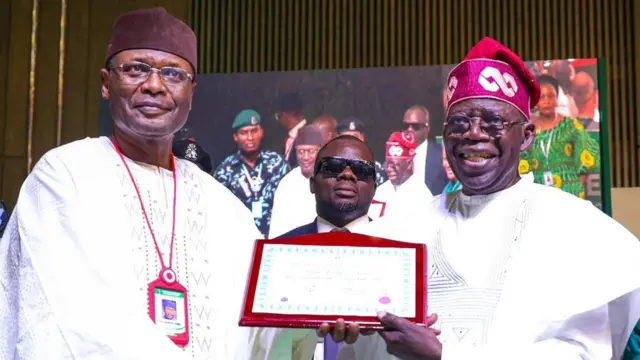CALLS to stop Presidents from appointing the chairman, commissioners and other presiding officers to the Independent National Electoral Commission (INEC) took centre stage, yesterday, in Abuja, as the Nigeria Civil Society Situation Room issued its comprehensive Credibility Threshold for Nigeria’s 2027 General Election.
Relatedly, the Chairman of the House of Representatives Committee on Foreign Affairs, Wole Oke, asked INEC to address the confusion that voters always confront while casting their votes owing to overcrowding of ballot papers.
The Credibility Threshold for Nigeria’s 2027 General Election was officially unveiled by the Chairman, Senate Committee on Electoral Reforms and former governor of Plateau State, Simon Lalong, along with present and past conveners of the Situation Room.
The document, drawing on lessons from the 2015 to 2023 cycles, global best practices and the lived realities of Nigerian voters, defines the non-negotiable standards that the 2027 polls must meet to be accepted as free, fair, inclusive, peaceful and technologically secure.
Chairman of the Inter-Party Advisory Council (IPAC), Yusuf Dantalle, described allowing a man running for an election to appoint the person who decides the faith of that same election as an aberration, stressing the need for the judiciary to be sanitised.
“The judiciary, on the other hand, needs to be sanitised, because even if INEC tries to do a good job, some persons in the judiciary may come up and throw it away using technicalities, which is a very serious issue of concern,” he said.
The Situation Room Convener, Yunusa Yau, noted: “Nigeria can no longer afford elections that leave citizens doubting the sanctity of their vote. This Credibility Threshold tells every actor, government, INEC, political parties, security agencies, the judiciary, civil society and the media exactly what must be done and by when. No excuses, no backsliding. Credible elections are a shared responsibility.
“Meeting this threshold is not optional; it is the democratic debt owed to every Nigerian voter in 2027.”
According to him, the threshold rests on seven guiding principles, outlining six pillars of credibility that the 2027 polls must meet, to be credible.
Yau stated that polling-unit results must be digitally uploaded to the INEC Result Viewing (IReV) portal within two hours of declaration, while collation at all levels must be live-streamed without interruption.
He disclosed that the Situation Room would convene high-level dialogues with all actors and activate an Early Warning and Rapid Response Hub to escalate urgent threats to election integrity.
Meanwhile, Oke, who represents Obokun/Oriade Federal Constituency of Osun State, argued that the confusion faced by Nigerian voters during elections due to long ballot papers had been responsible for the growing number of void votes recorded at polls.
He suggested that logos of inactive and obscure political parties should be removed from ballot papers to make it short and easy for voters to peruse before casting their votes.
The lawmaker stressed that the increasing number of non-performing political parties on the ballot makes it harder for citizens, especially those with low literacy levels, to cast their votes correctly.
Speaking in a position paper titled ‘Strengthening INEC’s Regulatory Role Over Political Parties to Safeguard Democratic Integrity’, the lawmaker noted that feedback from the field showed that some voters had mistakenly voted across party lines or invalidated their votes due to the complex ballot design.
“The proliferation of these unserious parties not only wastes INEC’s time and resources but also robs voters of their ability to make informed and accurate choices,” he added.







